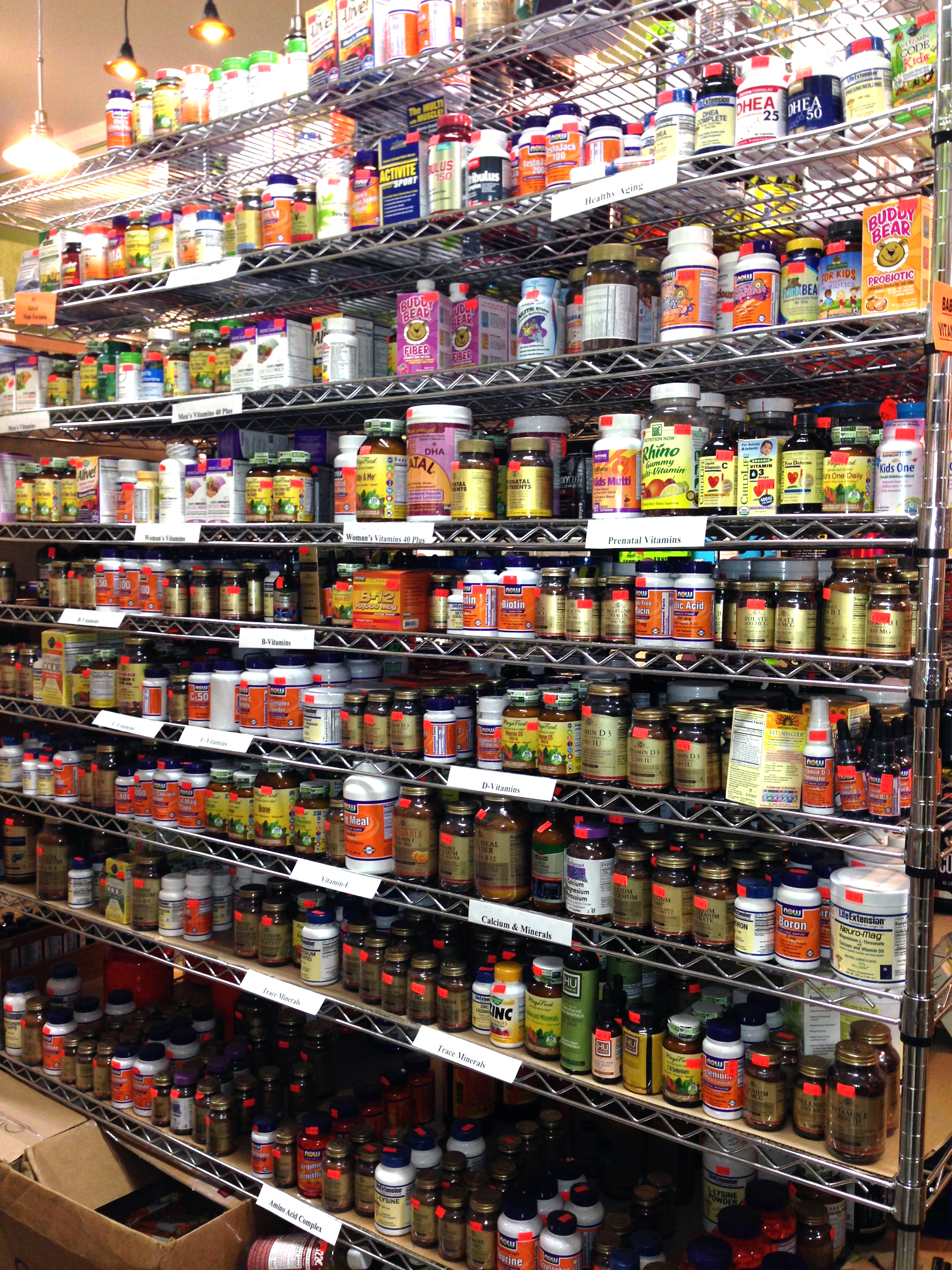By Candace H. Chemtob, MS, RD, LD, CSSD
Nutrition should be simple. Unfortunately, Americans are bombarded with inaccurate nutrition information from supplement manufacturers to TV personalities. This misinformation creates confusion, and nutrition myths take on lives of their own. Listed below are some commonly held nutrition myths:

Myth 1: If some is good, then more must be better. Living in a world where more square footage, more horsepower, and more carats is revered, it is easy to understand why many believe that MORE vitamins must be “better”. Coupled with the misconception that vitamins are harmless, “mega” doses (exceeding the RDA) are found in every grocery and health store, with more than 50% of Americans taking these supplements (Gallup Poll, 2013). However, surprisingly, it has been known for decades that large doses of supplemental vitamins can be harmful. In 1994, supplemental beta carotene (a Vitamin A precursor) was shown to increase lung cancer. The same study also found an increase in strokes among subjects taking supplemental Vitamin E (NEJM, 1994). Since then, other studies have confirmed similar findings. In 2004, the Cochrane Database reviewed fourteen research studies and concluded that supplemental Vitamin A, C, E, and selenium increased mortality. Last year, in the Annals of Internal Medicine it was stated that vitamin supplementation “is not justified and they should be avoided.” The fact that there was substantial evidence in 1994 (20 years ago!) that vitamin supplements could be harmful, illustrates that nutrition myths are often kept alive by those who profit from perpetuating this misinformation.
Myth 2: To build muscle, you need “more” protein. Athletes do need extra protein when compared to sedentary individuals, but probably not nearly as much as you think. Squash players require 1.2 to 1.4g protein per kg (e.g. 82 to 95g protein per day for a 150 pound athlete) as compared to 0.8g/kg for the non-athlete. The average American diet contains 15% calories from protein, which is approximately 94g protein in a 2,500 calorie diet (NHANES 1999 to 2000). Given this level of protein intake, most athletes are expected to consume enough protein from their diet alone without the need for “supplemental” sources such as protein bars or drinks. Consuming more protein than you need does not promote or enhance muscle building. Instead, the excess protein is broken down and can be used as an energy source. Or, just as is in the case of eating excess fat or carbohydrates, excess protein can be stored as fat also.
Myth 3: To build muscle and lose fat stores, eat a high protein diet and severely restrict carbohydrates. Severely restricting your carbohydrate intake can have the unintended, opposite effect, and result in a loss of muscle mass that is triggered by the brain. The brain consumes exclusively carbohydrates as an energy source, as do some blood and nervous system cells. Without an adequate supply of carbohydrates, the starving brain sends a message to break down muscle mass and convert it into carbohydrates through a process called gluconeogenesis. Experts agree the minimum requirement of dietary carbohydrates is 130g per day. Popular fad diets, such as the Paleo (23% carbohydrates which translates to 115g carbohydrate in a 2,000 calorie diet, Cordain, JANA, 2002) and Atkins Diets, do not meet the minimum recommended carbohydrate intake and could promote a loss of muscle mass.
Myth 4: Caffeine gives you energy. Energy is only derived from food, not caffeine. Caffeine is a central nervous system stimulant. On the positive side, caffeine can decrease “perceived effort,” meaning it makes a task seem easier. Caffeine can also make you feel more alert and awake. However, there are downsides to excessive caffeine intake, which includes making you feel jittery or nervous, and it can cause difficulty sleeping (FDA.com). Also, caffeine is addictive and has withdrawal symptoms such as headaches, muscle aches, and temporary feeling of depression and irritability. While moderate amounts of caffeine (100 to 200mg/day) are not harmful, most experts suggest more than 600mg per day is too much (FDA.com). If you are tired, there is no substitute for healthy eating and adequate sleep.
In conclusion, keep in mind that there is no substitute for eating a healthy diet with a wide variety of unprocessed foods, such as fruits, vegetables, whole grains, low fat dairy products, and lean meats. Extreme solutions are never sustainable and may have unintended negative health effects. Ignore all claims for “quick fixes” and seek reliable nutrition information from your physician, registered dietitians, or from www.nih.gov.





